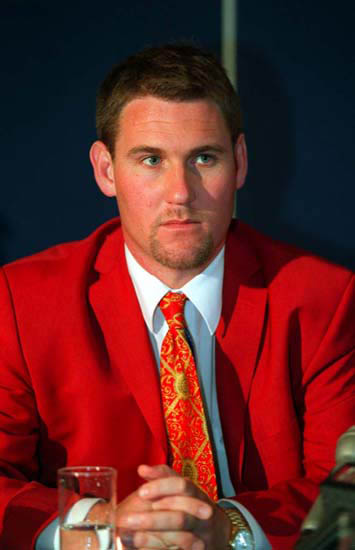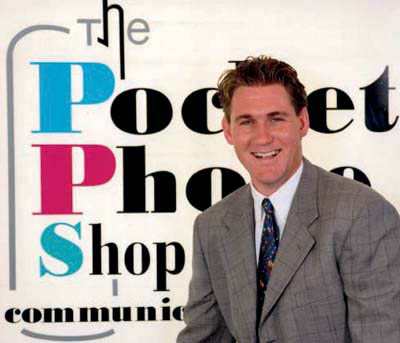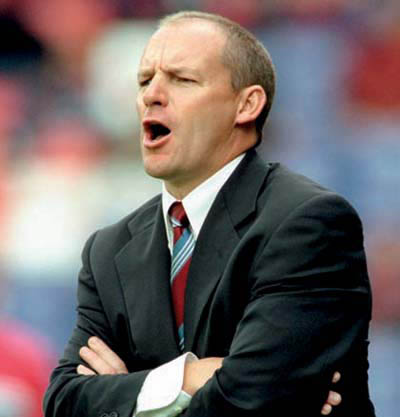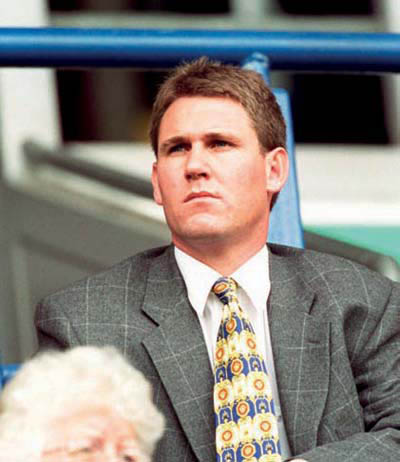Be Careful What You Wish For (47 page)
Read Be Careful What You Wish For Online
Authors: Simon Jordan

Soon Parish approached me as I was the biggest creditor. He wanted to do a deal, rolling the debts to me into a new structure with him and others to bring the club out of administration. I looked at his proposal but before I even had a chance to really consider it everything changed!
Agilo were now forced into funding the administration as the business had cash calls and administration meant any monies coming in from transfers had to pay down football creditors first. So the likelihood of them getting their money even if they, or Guilfoyle, smashed out players in the remaining days of the transfer window appeared extremely unlikely. All they had been told and had ignored was now dawning on them, but again this was of little consolation to me.
Victor Moses was sold and the administrator announced he had secured a £2.5 million fee from Wigan, which was not true! My information was that Guilfoyle even tried to press-gang players into leaving. Apparently young Nathaniel Clyne was told he had to be sold to Wolves. I understand from Neil that they got the upstanding Phil Alexander to advise this seventeen-year-old boy that if he didn’t go, the rest of the players wouldn’t get paid. If so, this was a shameless tactic, and not even true. I phoned Neil to get him to speak to Clynnie as well as Neil Danns and Darren Ambrose, two others who were earmarked for the fire sale, to tell them not to go.
I watched from the sidelines to see how events would play out, though I knew what was going to happen. Given that the club had ten points deducted and were now in a relegation battle, I knew
that
a cut-price sale could send Palace down. Agilo didn’t give a toss and would have sold everybody and everything to get their money, irrespective of what that did to the club and how it would look in the eyes of a potential buyer. Also the administrator, despite protestations to the contrary, was most probably doing the bidding of Agilo. Brajovic had put the club into administration, now he had to fund it, and ironically rather than reducing his debt he was increasing it.
I saw Palace a week later beat Wolves in the televised FA Cup replay. Then they drew Aston Villa in the next round, which again would be on TV and got a replay too, which would generate circa £1 million in unbudgeted income for the club’s administrators. Bloody sod’s law!
I now knew that Parish really wanted to buy this club. He hinted that there were others involved and I suspected that he needed these others financially. His original idea was to include me in the equation as I controlled the CVA. But I had personal guarantees in the club for several million for leases and advance season ticket sales and as soon as Parish became aware of this the whole situation changed! It seemed to me that he now felt I was superfluous to requirements. He played the role of reluctant buyer brilliantly, convincing everyone he didn’t really want to buy the club and would do it only if he absolutely had to!
As I watched Parish manoeuvre and manipulate circumstances towards achieving his end of owning the club or part of it, albeit as a ‘reluctant owner’, I tried to ensure that I and the other unsecured creditors got the best return they could. Many people purporting to want to buy the club out of administration approached me but where had they been when I had it for sale?
Anyway, they were all complete time wasters. One who approached me and I nearly vouched for was the owner of Croydon Athletic
Football
Club, a wealthy young sports agent. I was introduced to him by Robbie Earle the ex-footballer, and he came and met me in the Dorchester and talked a good game. He even upon request produced proof of funds for £15 million. But this was to prove a red herring as despite being a successful businessman, Mazhar Majeed was soon arrested as the ringleader in the match-fixing scandal surrounding Pakistan Test cricket.
Parish had picked my brains during the early period of administration, validating cash flows and getting to grips with the business when we had looked at a possible future together. Now he and others decided that there was no need to do a deal with me but they would ‘reluctantly’ still buy the club but only in the event they could get the CVA through. That could only happen if the bank and I voted for it and given that the bank was secured by me it would almost certainly follow my lead. I was confronted with the ‘turkey voting for Christmas’ scenario. Either I voted for the proposed CVA or I could be responsible for the club being liquidated.
By now I had accepted that I was never going to return to Selhurst Park and to be honest I wasn’t desperate to hang on to some vestige of control.
What I didn’t think was unreasonable was to expect a decent amount in the pound for the unsecured creditors, of which I and the bank made up 80 per cent, to allow me to leave this heart-breakingly difficult time behind me. I was advised that a deal of somewhere between 10 and 20p in the pound was what I could expect. Even the unsecured creditors at Portsmouth, which was universally accepted as fucked as a club, got 20p in the pound. What I was then told I had to vote for was half a penny in the pound, one of if the not the lowest ever CVA payouts. For the £35 million-plus I had put into Palace, I was going to get £175,000
back
. My financial nightmare was showing no sign of subsiding, even now. But if I didn’t vote this through the ‘club’s blood would be on my hands’.
Parish and his group were apparently the only bidders in town and apparently the administrator had limited funding and could not go on. Perhaps the fact he took his fees at the beginning rather than the end didn’t help. He was in a hurry to sell, which suited Parish as he desperately wanted it. I wanted the administrator to have longer to market it and find a few bidders. Palace still had to survive relegation from the Championship, which meant no one would really bid until they knew what division the club was in.
All of this led, in my opinion, to a forced sale with propaganda abounding in the media about the impending demise of the club. The administrator’s attempt to attract a buyer was pitiful. He engaged a sports agent to sell players and advertised the sale of the club in the
Financial Times
and that was about it. Guilfoyle was having a nightmare. He had Brajovic providing funding and screaming at him on a daily basis; he had Parish and his gang, the ‘reluctant’ but preferred bidders, playing hide and seek with themselves, and the problem of me as the biggest creditor.
The administrator refused to take time to find a better buyer so in the end I was forced into a corner. I had little choice but to vote for a CVA that, as I said, gave me virtually nothing. I could, of course, have played Russian roulette with the Parish consortium and the administrator and told them to liquidate, and, knowing how much Parish personally wanted some form of ownership of Crystal Palace despite his expressed reluctance, perhaps I should have done, but I didn’t.
After nearly a year of purgatory I was almost glad it was over. At least I would have no more to do with people like the
destructive
Brajovic, disingenuous Parish, disappointing Guilfoyle and ultimately disloyal Phil Alexander.
Bitter? No, this is not me being bitter. For ten years I fought every battle and won most of them, except the most important one. I had lost a decade of my life and vast amounts of money and for what? The loss of a high-profile business in the public domain put every other facet of my financial life under scrutiny and set off a cascade of events that two years later is still causing me severe problems.
No. I am not bitter. I was complicit in my own downfall at Palace. They say that fortune favours the brave but I don’t believe it extends to the foolishly brave. What I am is angry, angry with myself for putting myself in a position where people could take advantage of me.
I suppose I have to accept that people will try to take advantage of you or try to get what they want for as little as possible. I just would have preferred if they had been upfront about it, rather than show one face to me and another to the watching world.
Without a doubt, people’s agendas were served and perhaps I got what I deserved for overextending myself or for being outspoken or whatever. But imagine how you would feel if you lost vast amounts of your money and ten years of your dreams and ambitions were taken away from you. How would you feel if you suffered damage to your reputation and put your own and your family’s financial future in peril … Angry?
As for Agilo, did they get all their money? Despite all Brajovic’s threats and bravado and extreme tactics, no, they did not – and without a shadow of a doubt they would have got it from me. Perhaps there is a god after all. I have to say that Milos Brajovic is one person I sincerely hope to meet again.
The loss of a football club seems trivial compared to the scale
of
world problems but everything is relative. Life goes on, and perhaps writing this book has, in some way, closed this chapter of my life. This book was never meant to be an exorcism and certainly not a ‘state of the nation’ on football. I’ve tried to explain what my experiences of this world were like. Owning a football club is bloody hard work, extraordinarily expensive, and can be a thankless task.
The way I lived my life – professionally and personally – gave me so many experiences, good and bad, and something should be taken from both.
The multi-millionaire tag, as well as the benefits that went with it, may have gone for the time being and I suspect I will always carry a level of disappointment about the manner in which my ownership of the football club came to an end, but throughout life there are many challenges and how you approach the next raft of them defines you. After all, to paraphrase Kipling, with ambition often come both triumph and disaster and you have to treat both these impostors just the same.
I don’t walk through life like a Monty Pythonesque character whistling ‘Always Look on the Bright Side of Life’. But I do have an absolutely resolute determination to get myself back to a position where I can buy back my football club. Although, for God’s sake, I trust that common sense would prevail. But who knows? Like the fable of the scorpion and the frog: I can’t change my nature!
And as one philosopher said: winners are dreamers who never give up.

Oh dear, the suit that fashion forgot. My first impression of the football club was that it was a bit like a Butlins holiday camp, but I think I may have taken it a little too far.

The time of ambition and drive – the halcyon days building an empire at The PocketPhone Shop.

Crystal Palace manager number 1 Steve Coppell.

In the stand away to Blackburn Rovers, the first league game of my ownership. Little did I know what joys awaited.